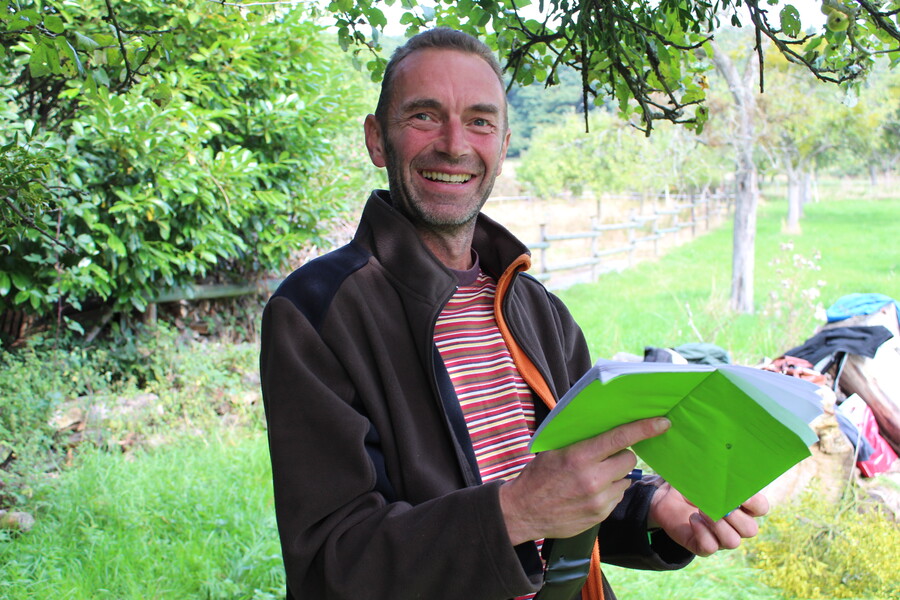Pioneers from foreign disciplines
My usual occupation is urban farming which is a vocation I chose to reflect my philosophy that Nature and the biodiversity and ecosystems that it contains is essential to the well-being of myself and others. Consequently my choice is to live a low carbon lifestyle as much as possible. It is from this perspective that I became interested and involved in Climate KIC. My first placement was with an urban farming project in Birmingham which led to ideas of developing an urban farming community that incorporated integrated biodiversity enhancement techniques as well as experimenting with self-sustainable low carbon lifestyles. My choice to be placed with Naturefund reflected my interest in restoring and conserving biodiversity as an integrated aspect of my lifestyle and during my time at Naturefund I have been able to further develop the idea of Urban Ecoagricultural Communities which restore the ecological connectivity between natural and built environments. In particular, the project proposal that I have been working on is to create an urban/rural system whereby biodiversity enhancement is integrated into the built urban landscape in order to create a ‘closed loop’ system that enhances both ecological and human well-being. This idea of a ‘closed loop’ system is very important to me and reflects how existing urban communities tend to outsource biodiversity enhancement despite the fact that biodiversity is essential to sustain the ecosystem services that humans depend on.A mutually dependant relationship
From this point of view the most important aspect of my time at Naturefund is to realise that there is a mutually dependant relationship between biological diversity, ecosystem services and nature conservation and that the individual aspects of this cycle can either be integrated within a 'closed loop' system or fragmented within an 'open loop' system. This relationship and the way in which it is embodied into the built environment, whether as an open loop or closed loop system, has very important implications in terms of the spatial planning of human settlements, especially if the built environment is an open loop system since the corresponding biodiversity and ecosystems that the built environment depends on needs to be identified and accounted for in order to ensure that the ecological sustainability of any particular human habitat is properly audited in terms of its ecological, social and economic impacts. I hope these insights and the project proposal that I created as a result of them can be used to enhance not only the work of Naturefund but also assist others in the endeavour to create sustainable human habitats which respects and accounts for the ecological systems that human survival depends.I found supportive and encouraging
In this regard, my time at Naturefund was both insightful and enjoyable with a working environment that I found supportive and encouraging to my interests and experience. In some ways one disappointing feature of my Pioneer into Practice placement was that one month was not quite long enough, something that I will feedback to the Climate KIC organisation. I feel that a more flexible approach should be incorporated into the PiP structure so that the scheme takes advantage of individual circumstances and the fact that some individuals will find their projects more or less engrossing. To that end, overall I feel the PiP experience has broaden my understanding of the difficulties inherent in planning for continued human development and deepened my knowledge of the ideas and concepts associated with ecological sustainability. In this regard, in order to continue and add to my work with Naturefund my suggestions for future PiP placements are (1) Explore LIFE + EU funding (2) Continue with the project ‘The Role of Designed Ecosystems in Sustainable Urban Designi’ using my project proposal as the starting point. Steve Gwynne17 October 2013

